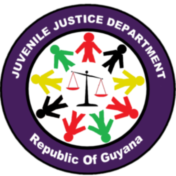Detention Before Sentencing

A juvenile who has been arrested shall not be questioned or asked to make a written statement unless:
- The person questioning him or her has clearly explained that he or she does not have to make a statement if he or she does not want to his or her statement may be used against him or her in court he or she has a right to consult a parent.
- He or she is given reasonable opportunity to consult with his or her representative.
- He or she is in the presence of a parent.
- In the absence of his or her parent, is in the presence of an adult other than a police officer.
If legal representation is requested for the juvenile, he or she shall not be asked to make a statement until eight hours has passed. This is to allow for a lawyer to be retained to act on behalf of the juvenile.
If the circumstances allow, the court may also order that the juvenile be placed in the custody of a responsible adult pending the trial.
- Murder.
- Manslaughter.
- Attempted murder.
- Assault causing actual bodily harm (indictable).
- Assault causing grievous bodily harm (indictable).
- Unlawful possession of a firearm and ammunition.
- Robbery.
- Robbery under arms.
- Arson.
- Possession of narcotics.
- Trafficking in narcotics.
- Wounding with intent.
- Break and enter.
- Rape.
- Sexual activity with a child by abusing position of trust.
- Care worker engaging in causing or inciting sexual activity with a person with a mental disorder.
A police officer must not release a juvenile where he reasonably believes that it is in the public interest that the juvenile be held in custody. The court may issue a warrant for his or her arrest where the juvenile does not go to court.
There is a timeframe of forty eight hours for a juvenile to be taken to court after an arrest. Keeping a juvenile in custody should not be used as a substitute for appropriate child protection, mental health or other social measures including but not limited to recreation and education.
A juvenile against whom a charge is laid must appear before a court, and the court shall cause the charge to be read to the juvenile. If he or she is not represented by counsel the court must be sure that the juvenile understands the charge. The court must then explain to the juvenile that he or she may plead guilty or not guilty to the charge. If the court is not sure that the juvenile understands the charge or how to plead the court must order that the juvenile be represented by counsel. Representation by a lawyer can be through legal aid or other assistance programme or the magistrate can appoint a lawyer who will be paid by the State through the Registrar of the Supreme Court.
If the juvenile pleads guilty and the court finds that the facts support the charge, the juvenile shall be found guilty. If he or she pleads guilty but the court finds that the facts do not support the charge, the court shall proceed with the trial and find the juvenile guilty or not guilty.
